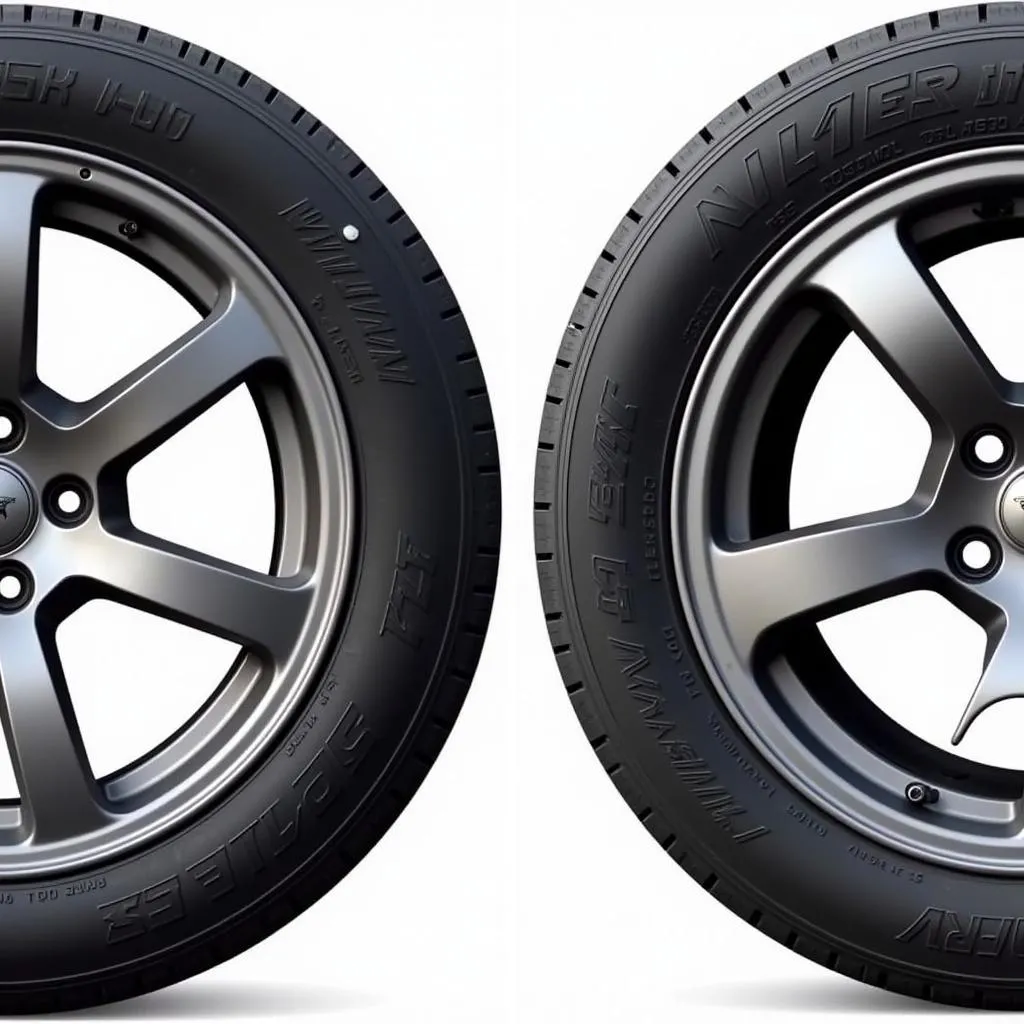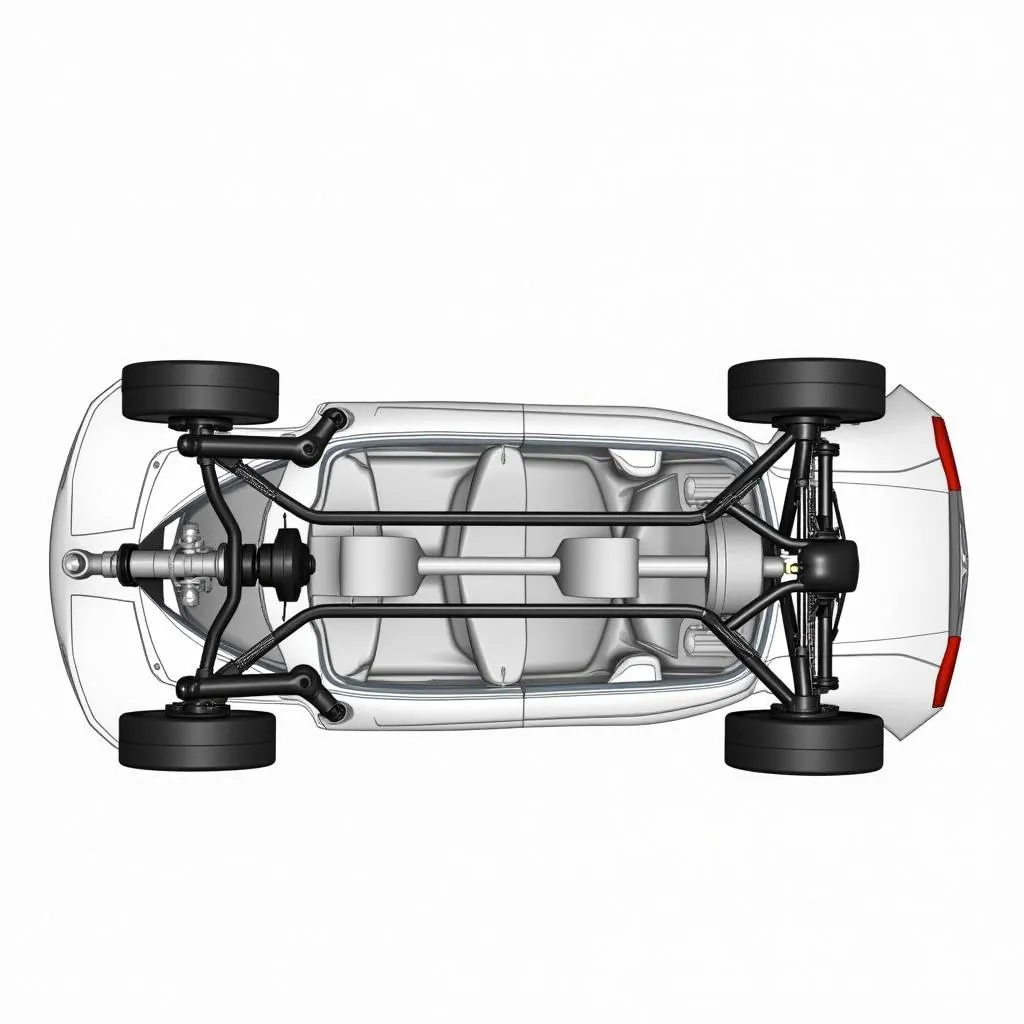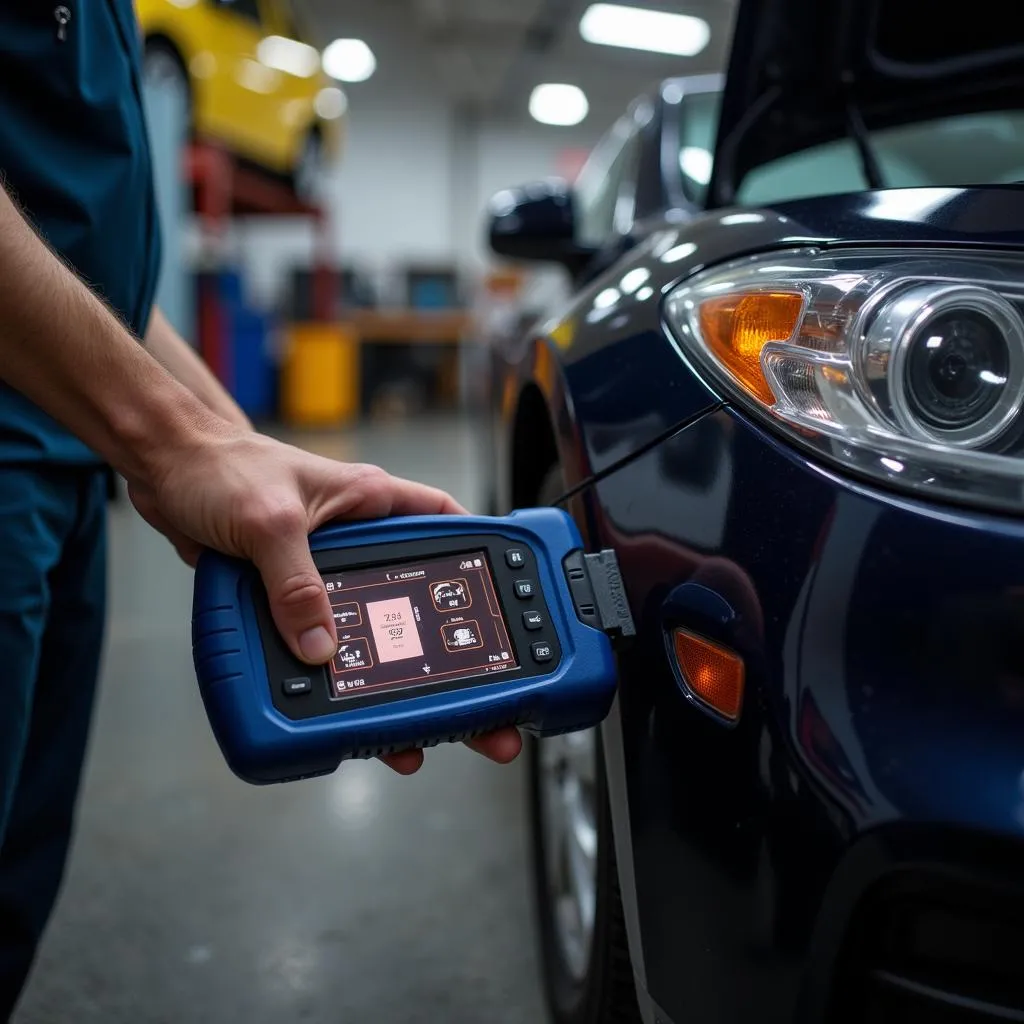Experiencing vibrations or shaking in your car when driving at higher speeds, particularly after hitting 60 mph, can be unnerving and potentially dangerous. This issue can stem from various factors, ranging from simple tire problems to more complex issues with your vehicle’s suspension or alignment. Identifying the root cause is crucial for a safe and smooth driving experience.
Several components could be responsible for your car shaking after reaching 60 mph. Let’s explore some of the most common culprits:
Tire Troubles: The Usual Suspects
Tires are often the primary suspects when your car shakes at higher speeds.
- Unbalanced tires: Tires wear unevenly over time, leading to imbalances that cause vibrations. These vibrations become more noticeable at higher speeds.
- Misaligned wheels: Improper wheel alignment can also lead to shaking, especially during acceleration or at higher speeds like 60 mph.
- Damaged tires: A bent rim, bulge in the tire sidewall, or a separated tire belt can all trigger shaking, especially noticeable at higher speeds.
 Car tire problems causing vibrations
Car tire problems causing vibrations
Beyond the Tires: Exploring Other Possibilities
While tires are a frequent cause, other components can contribute to your car shaking after 60 mph:
- Worn Suspension Components: Worn-out suspension parts like shocks, struts, ball joints, or tie rod ends can cause instability and vibrations, particularly noticeable at higher speeds.
- Alignment Issues: While we touched upon wheel alignment, issues with the vehicle’s overall alignment, including the steering system, can also lead to shaking.
- Brake Problems: Although less common, a sticking brake caliper or warped brake rotor can cause vibrations felt through the car, especially during braking at higher speeds.
- Drivetrain Malfunctions: In some cases, issues with the driveshaft, axles, or U-joints can cause vibrations that worsen with speed.
 Car suspension system components
Car suspension system components
What to Do When Your Car Shakes After 60 mph
If your car shakes after hitting 60 mph, take these steps:
- Safety First: Safely pull over to the side of the road and assess the situation.
- Check Your Tires: Visually inspect your tires for any visible damage like bulges, cuts, or uneven wear.
- Feel for Play: If possible, try to rock your tires to check for excessive play, which could indicate a suspension issue.
- Seek Professional Help: If you suspect any issues, it’s crucial to take your car to a trusted mechanic or tire specialist for a thorough inspection.
Diagnosing the Problem: The Importance of a Dealer Scanner
Identifying the exact cause of car shaking can be challenging without the right tools. A dealer scanner, like those offered by DiagXcar, can be invaluable in these situations. These scanners can read and interpret your car’s diagnostic trouble codes (DTCs), providing valuable insights into the underlying issue.
 Mechanic diagnosing car problem with a dealer scanner
Mechanic diagnosing car problem with a dealer scanner
DiagXcar: Your Partner in Automotive Diagnostics
DiagXcar offers a wide range of high-quality dealer scanners designed to provide accurate and comprehensive vehicle diagnostics. Whether you’re a car owner wanting to understand your vehicle better or a professional mechanic seeking advanced diagnostic tools, DiagXcar has a solution for you.
“Using a dealer scanner allows us to quickly pinpoint the root cause of vibrations, whether it’s a tire imbalance, worn suspension part, or a more complex issue.” – John Smith, Senior Automotive Technician at ABC Auto Repairs.
Conclusion
Experiencing shaking in your car after 60 mph is a sign that something is amiss. Ignoring the problem can lead to further damage and compromise your safety. By understanding the potential causes and utilizing the right diagnostic tools, you can ensure a smooth and safe driving experience. Contact DiagXcar today to explore our range of dealer scanners and take control of your car’s health.